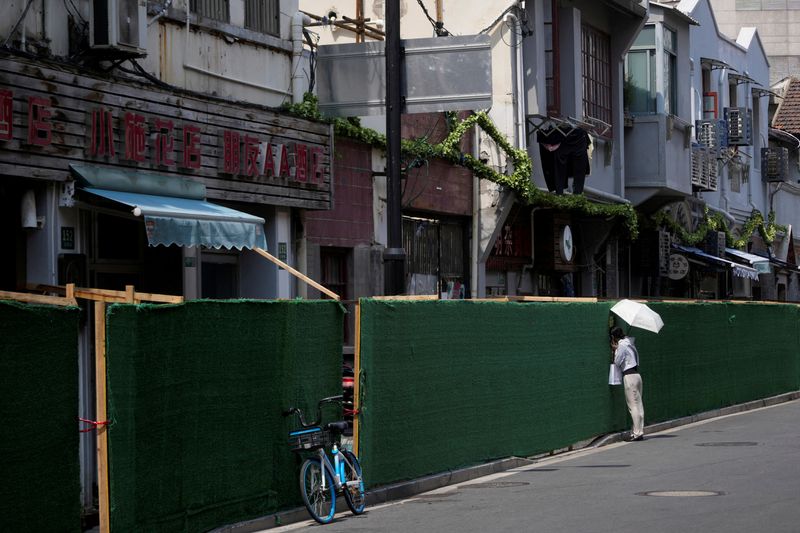WASHINGTON (Reuters) - Strict COVID-19 control measures in China have overtaken sour U.S.-China relations as the top concern of U.S. companies in the country, a business lobby said on Monday.
It said more than half of its firms reported the issue as a reason to cancel or delay investments in the world's second largest economy.
"The looming possibility that companies will again be forced to partially halt operations due to lockdowns and the impacts of local controls on consumer demand have undermined confidence in the business environment," the U.S.-China Business Council (USCBC) said based on an annual survey of 117 member companies.
China's economy narrowly avoided contracting in the second quarter as widespread lockdowns and the slumping property sector badly damaged consumer and business confidence.
Risks still abound as many Chinese cities, including manufacturing hubs and popular tourist spots, imposed lockdown measures in July after fresh outbreaks of the more transmissible Omicron variant of the coronavirus were found.
Most of the companies surveyed said negative effects of Beijing's COVID measures were reversible, but 44% said it would "take years to restore business confidence," USCBC said.
Those policies, continuing U.S.-China tensions, and "significant market access barriers" in China despite government assurances of equal treatment of foreign companies, have led to "record levels of pessimism," affecting companies' decisions about supply chains and future investments, the group said.
In the past year, 24% of companies have moved parts of their supply chains out of China, compared to 14% in the 2021 survey. Optimism in five-year business outlook for China has dropped from 88% in 2013 to 51% in 2022.

Still "companies overwhelmingly remain profitable in China," USCBC said, with 63% of respondents saying profitability increased in the last year.
COVID travel restrictions, cybersecurity rules, cost increases, and U.S.-China technology decoupling were also major concerns.